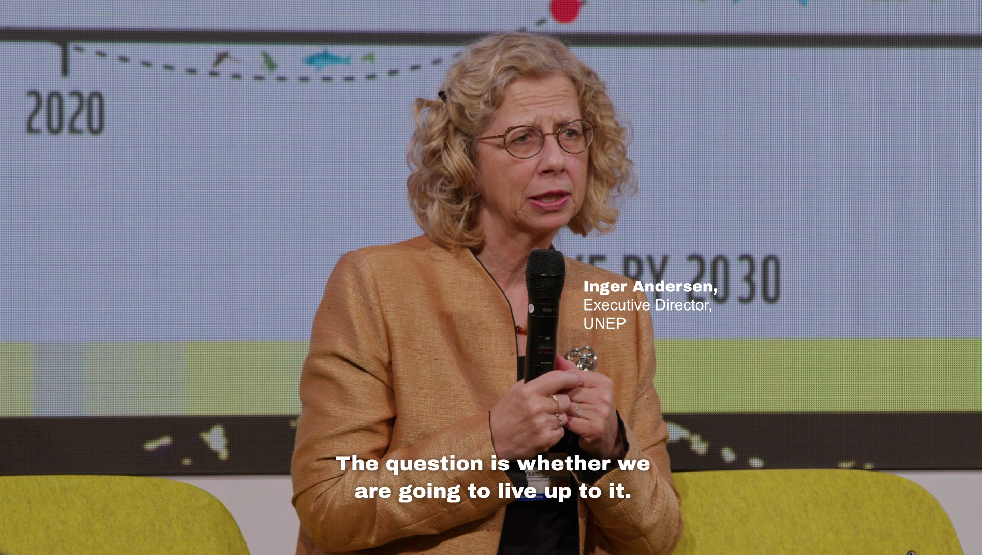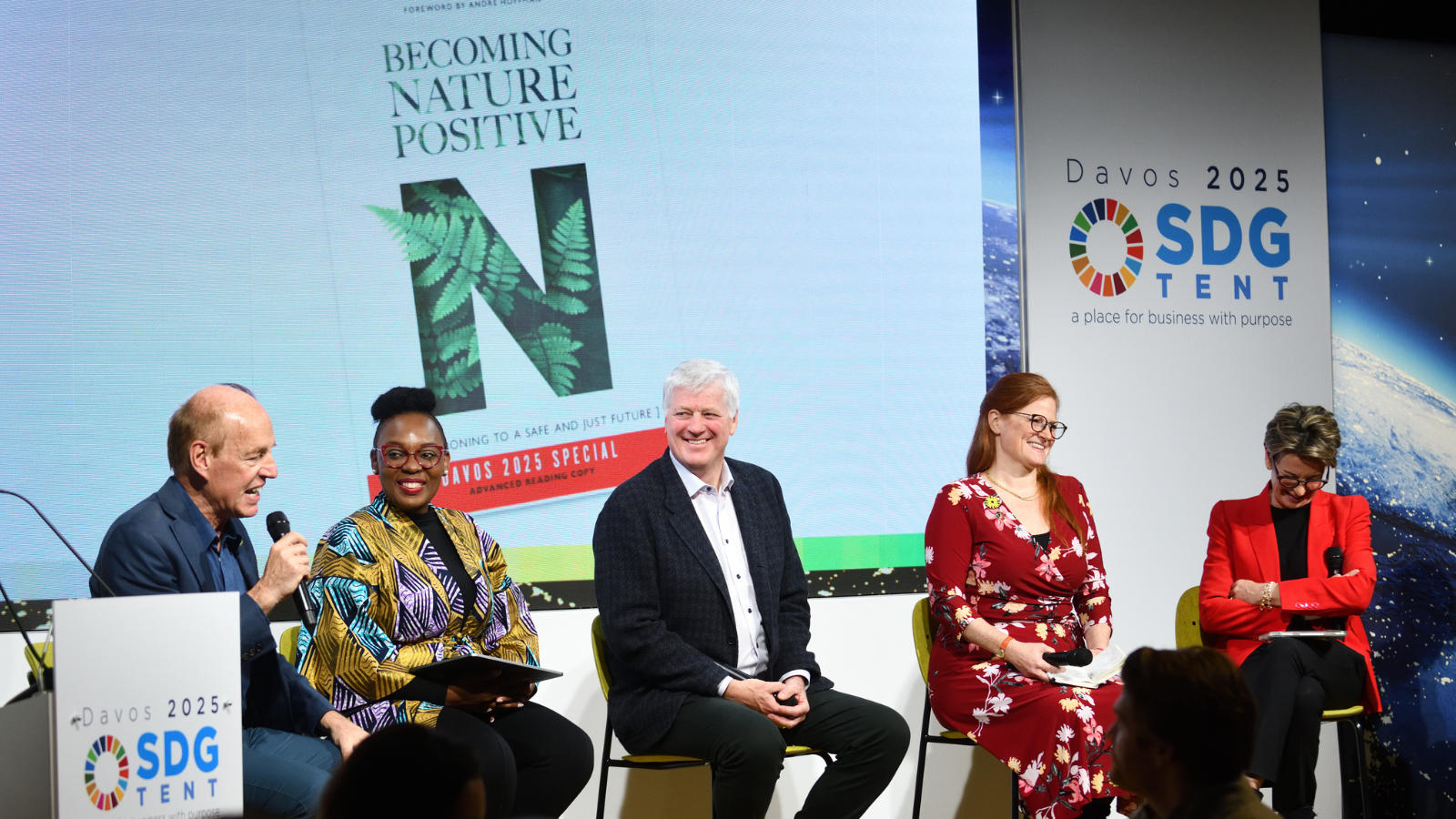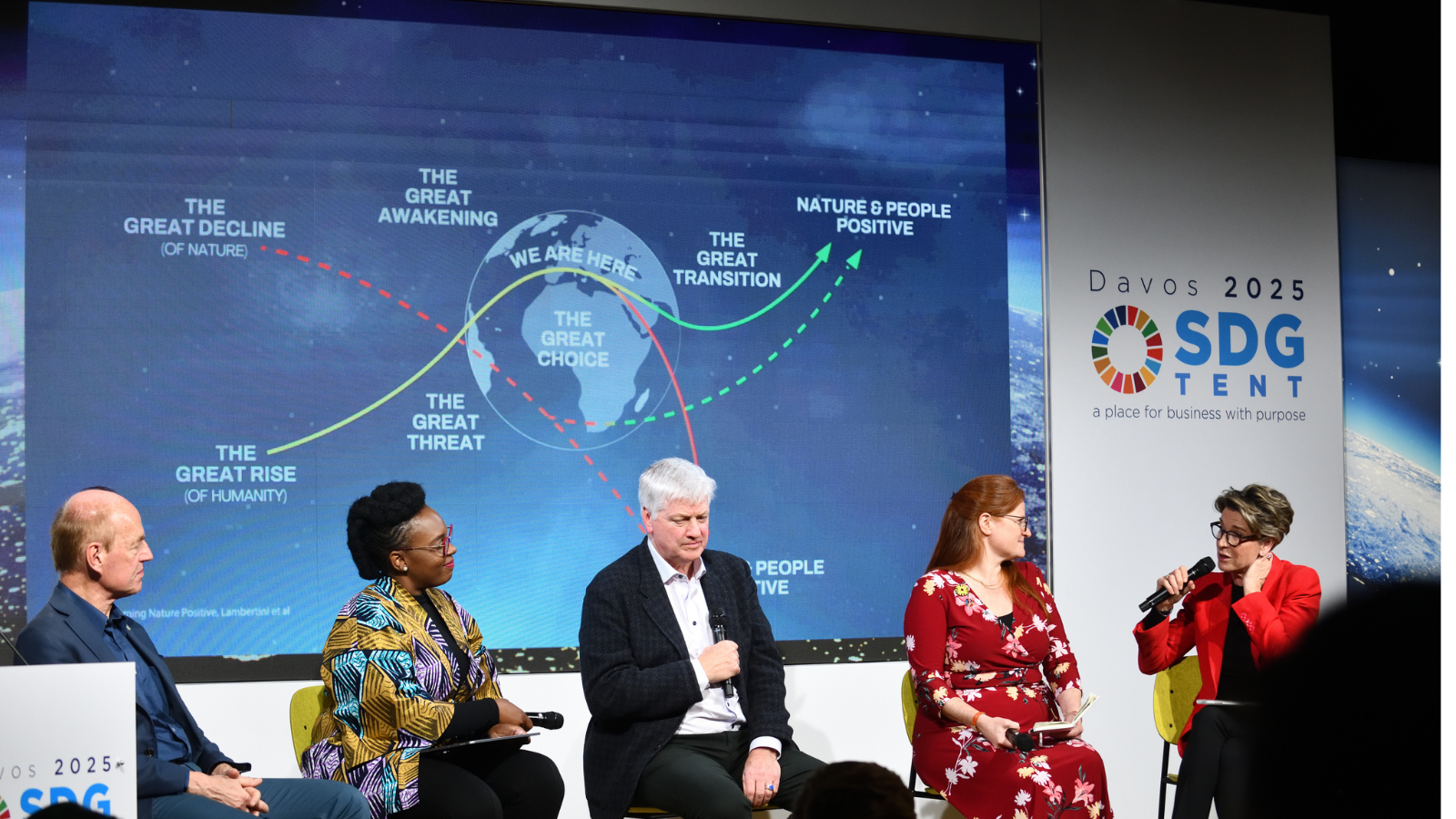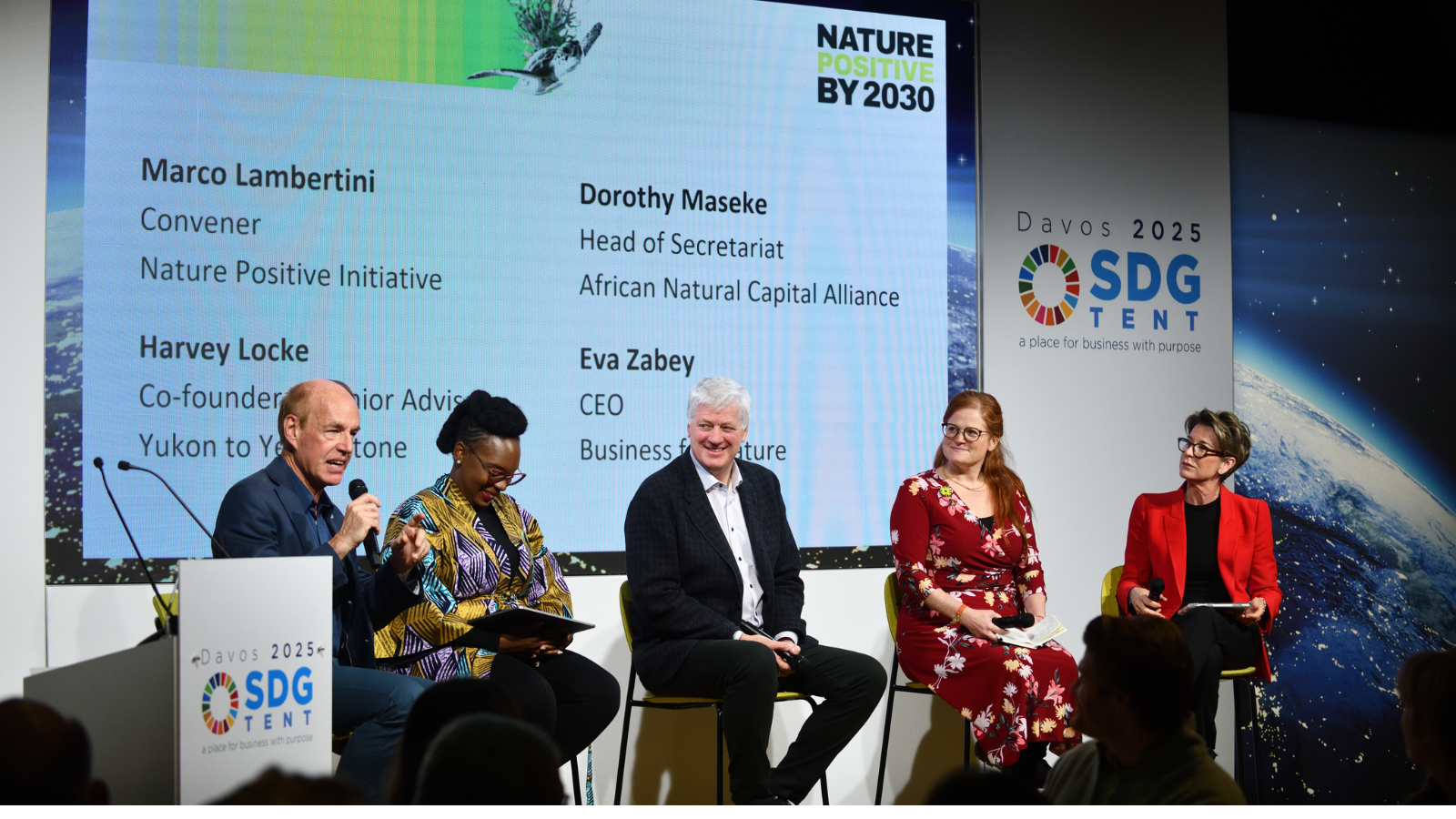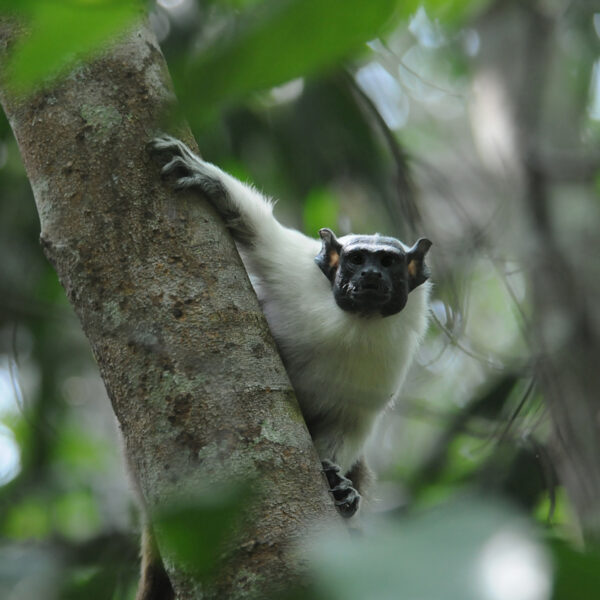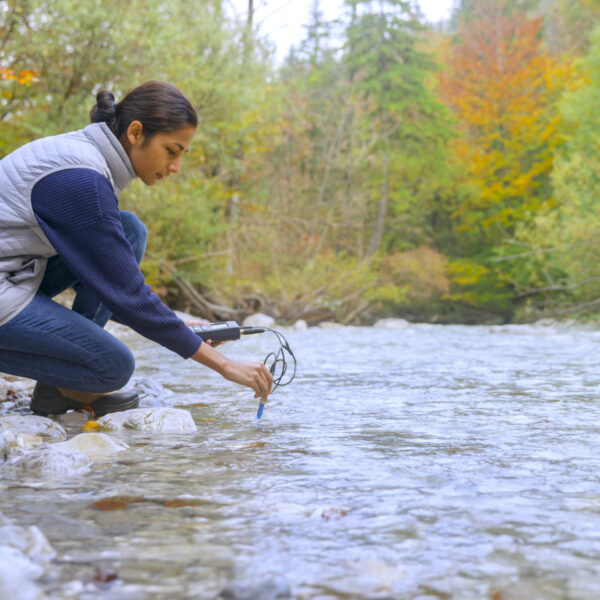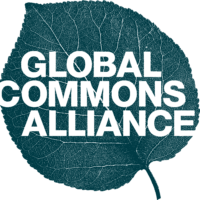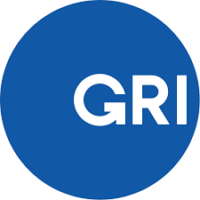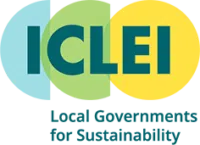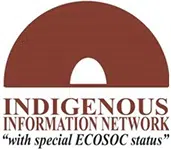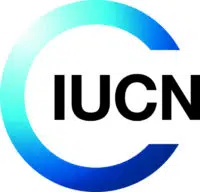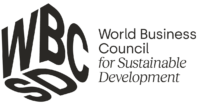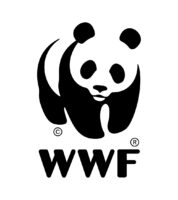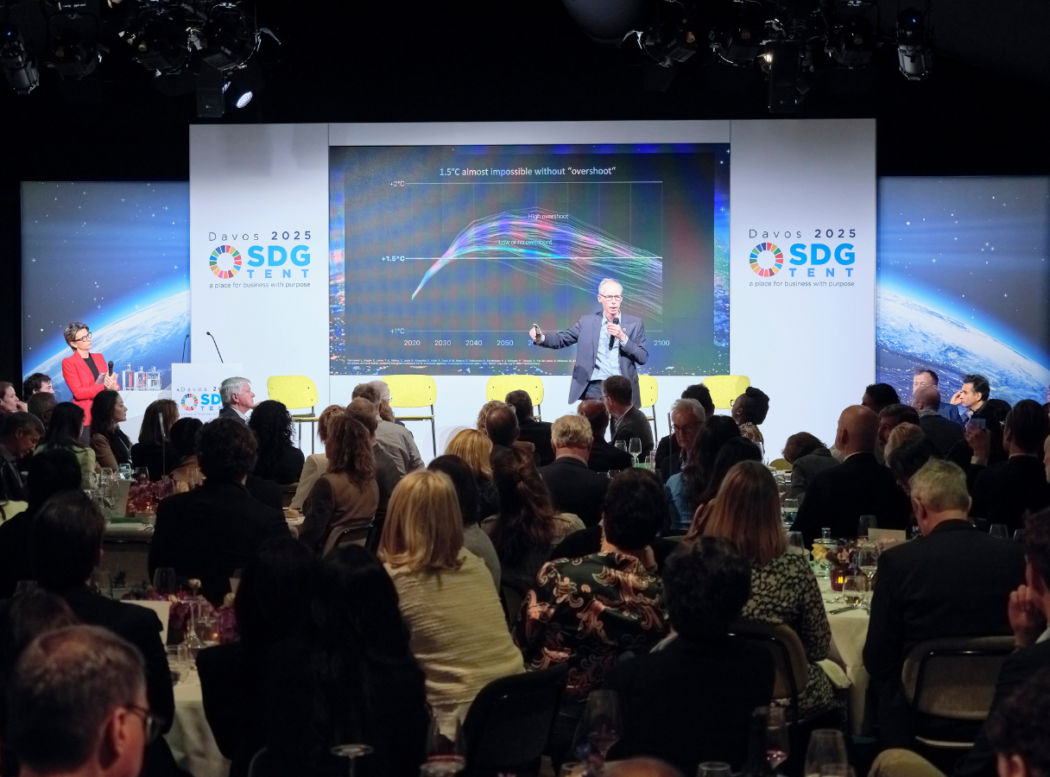
From high-level discussions to the packed Nature Positive Dinner in the SDG Tent, it is clear that for businesses, companies and financial institutions nature, and the existential threat of nature loss, continues to rise up the global agenda.
The WEF Global Risks Report 2025 – released ahead of the Annual Meeting – underlines this. Half of the top ten risks facing the world in the next decade are environmental and biodiversity loss and ecosystem collapse is ranked second only to extreme weather events (also exacerbated by biodiversity loss). For those making informed business decisions this is of utmost importance, and many businesses, companies and financial institutions are already changing their strategies to reduce impacts on nature and the climate and adapt their operations to face an uncertain future.
Nature Positive by 2030 is the global goal backed by governments, business and civil society and codified in the Kunming-Montreal Global Biodiversity Framework through its mission to halt and reverse nature loss, leading to full recovery by 2050. This goal provides a guiding light that can steer the recovery of nature, in the same way that net zero drives the world to tackle the climate crisis.
At the sixth edition of the ever-popular Nature Positive Dinner taking place in Davos this year, under the theme of ‘Accelerating Momentum to a Nature Positive Future’, the authors of the forthcoming new book, ‘Becoming Nature Positive’, covered the journey so far. They highlighted the exponential growth in the interest of business and investors in nature’s double materiality to the economy, stressing how it is increasingly clear how economics and nature are indivisible.
Meanwhile, scientists, business leaders, heads of key UN agencies and standards and target organizations, brought to light the urgent need and opportunity to change the way we do business and support a more sustainable future in the interest of business as well as society at large.
The event was hosted by Becky Anderson, CNN Anchor, Managing Editor, CNN Abu Dhabi, who moderated the first ever Nature Positive Dinner in 2019 and noted this year that nature positive is now “a measurable goal embraced by the corporate world”.
Opening the presentations, André Hoffmann, Vice-Chair of Roche Holding and Founder of InTent, and Marco Lambertini, Convener of the Nature Positive Initiative, talked about the need for a global nature goal like the one we already have for climate and commented on the latest developments in measuring nature’s loss or gain.
We either let nature’s decline continue and ultimately undermine human development, or we embrace the great transition to a net zero and nature positive future. There is no way we can achieve a people positive future without a nature positive one.
Marco Lambertini
In Davos the focus is predominantly on business, finance and economics. But speakers at the event kept coming back to the fact that nature is what sustains all life on Earth and controls the systems that have allowed our civilization to thrive, our societies to develop and our economy to flourish. Johan Rockström, Director of Potsdam Institute for Climate Impact Research, gave a sobering overview of the latest science on climate and emissions, pointing to the worrying recent acceleration in warming. We know we are losing nature faster than ever before, but Rockström explained that “we can still turn this around”. His latest research shows that “the Earth system has the resilience to regenerate herself if we turn this around and invest in nature positive”.
Inger Andersen, Executive Director at UNEP, Achim Steiner, Administrator at UNDP, and HE Nara Chandrababu Naidu, Chief Minister of Andhra Pradesh, were amongst the high-level speakers at the event, noting the essential need to deliver on the commitments the world has made. Minister Chandrababu highlighted that there are now one million farmers in his province who are doing nature farming, a number he foresees growing to 4 million by the end of the decade.
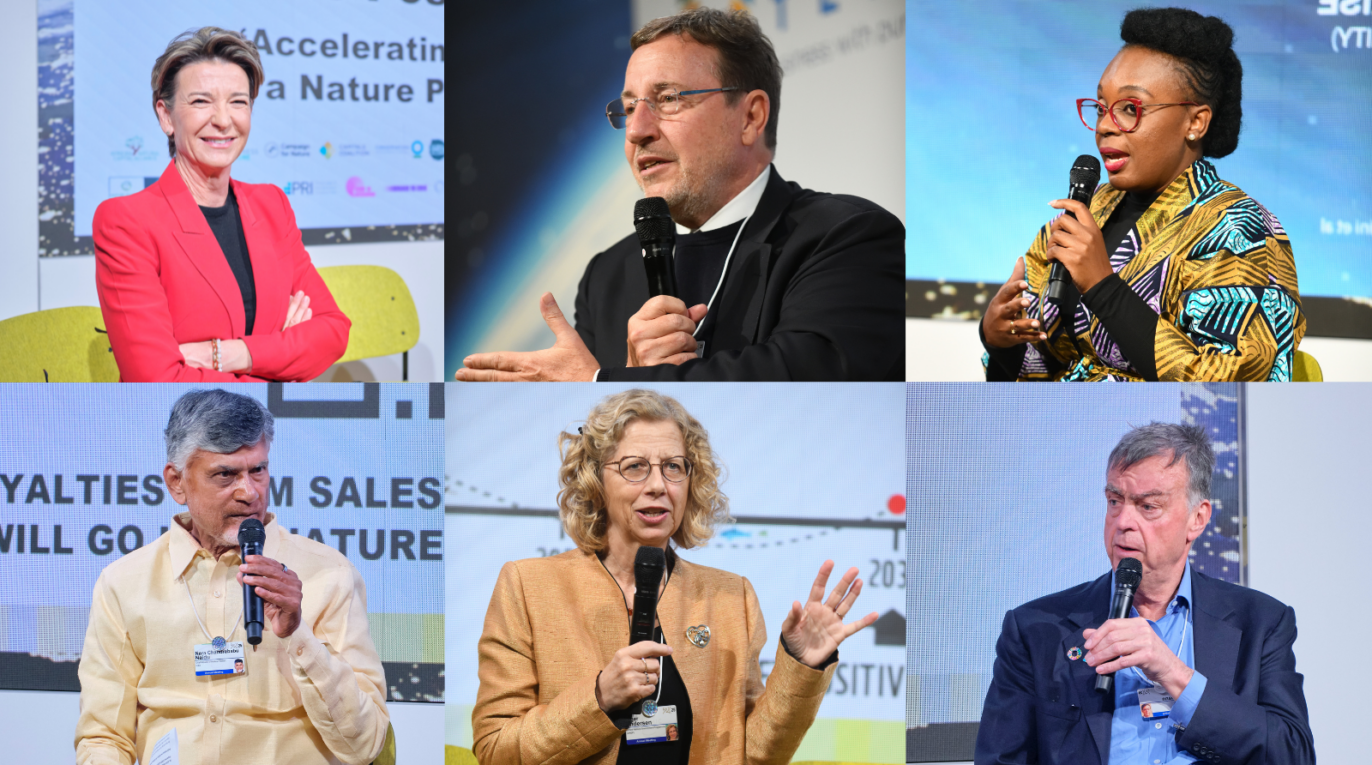
Next, attendees heard from Harvey Locke, Co-founder & Senior Advisor of Yukon to Yellowstone, Eva Zabey, CEO of Business for Nature, Dorothy Maseke, Head of Secretariat for the African Natural Capital Alliance, and Marco Lambertini about the forthcoming book, ‘Becoming Nature Positive’.
Alongside many other contributors, they offer a variety of viewpoints to see the global goal for nature.
See what they said…
Mark Gough, CEO of the Capitals Coalition was joined on stage by Jessica Fries, Executive Chair of Accounting for Sustainability, Lauren Smart, Head of S&P Global Sustainable and TNFD Member, Peter Bakker, CEO of the World Business Council For Sustainable Development, and Erin Billman, Executive Director of the Science Based Targets Network. The panel talked about the frameworks currently in place to help monitor and track impact and dependencies on nature, as well as the need for improvements and alignment.
For businesses and other organizations we need clarity on what we’re trying to work towards, and it needs to be simple enough that you can focus and achieve progress.
Jessica Fries
The Nature Positive Initiative is currently engaged in a process to align State of Nature Metrics globally. The beta version of the terrestrial metrics will be piloted this year, alongside the development of marine, freshwater and others. Subsequent guidance and the final framework will be openly available, to support the journey to a nature-positive world.
State of Nature Metrics will fit within existing frameworks and will help give one clear picture of whether we are overall losing or gaining nature – and where businesses need to focus to become more nature positive. As Erin Billman noted, “we need to get companies to operate within planetary boundaries, and the mechanism to do that is science-based targets for nature.”
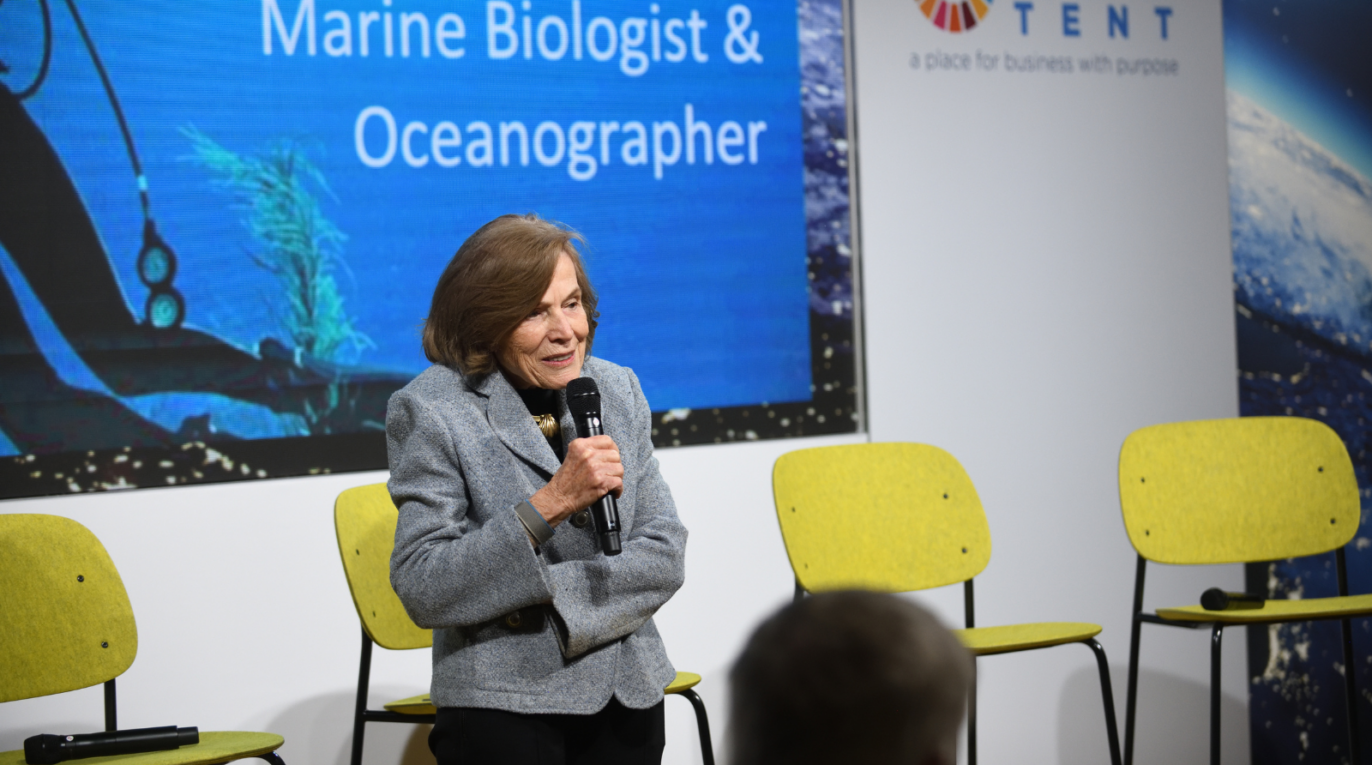
Juxtaposing all this, marine conversation evangelist Sylvia Earle closed the evening with a message of empathy and compassion, leaving barely a dry eye in the house.
It is time to shift in the other direction. Rather than consuming nature to generate wealth, maybe we have to take wealth to regenerate nature.
Sylvia Earle
At a separate invitation-only Chatham House Rule event, meanwhile, civil society, academics and business sustainability leaders discussed the political and personal challenges society faces in securing a net-zero and nature-positive world, and how to keep nature front of mind for global leaders and citizens – despite worrying and discouraging signals of the rolling back of environmental legislation and commitments.
In spite of worrying rollbacks going on in the outside world, there were rejuvenating signs in Davos of progress, scalable solutions and stronger than ever ambition that if we continue to work together can carry us towards a nature positive future.
